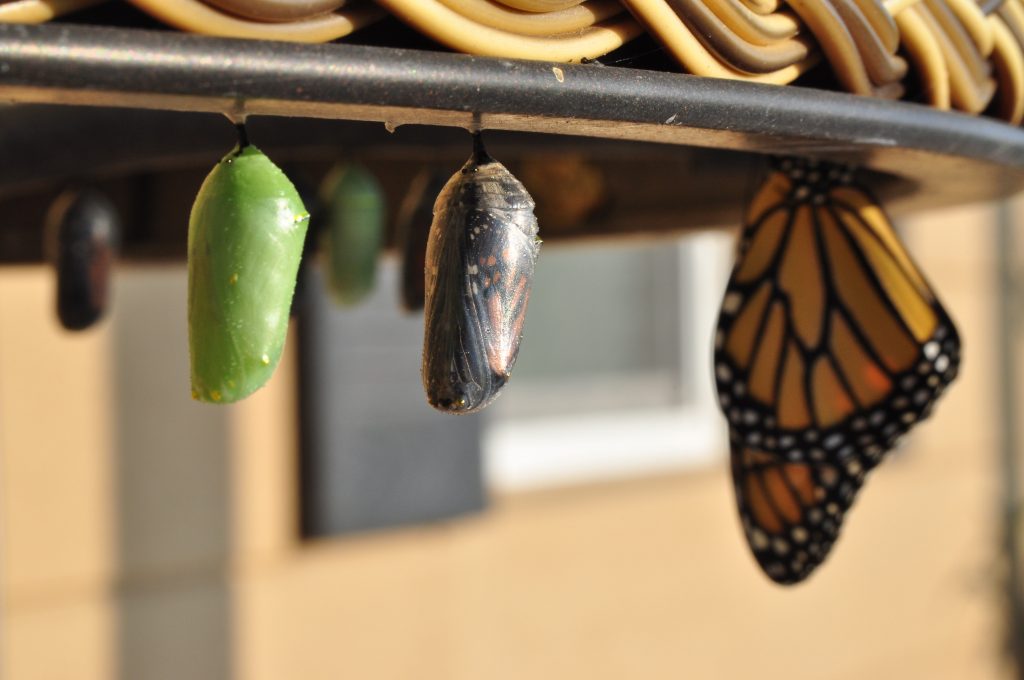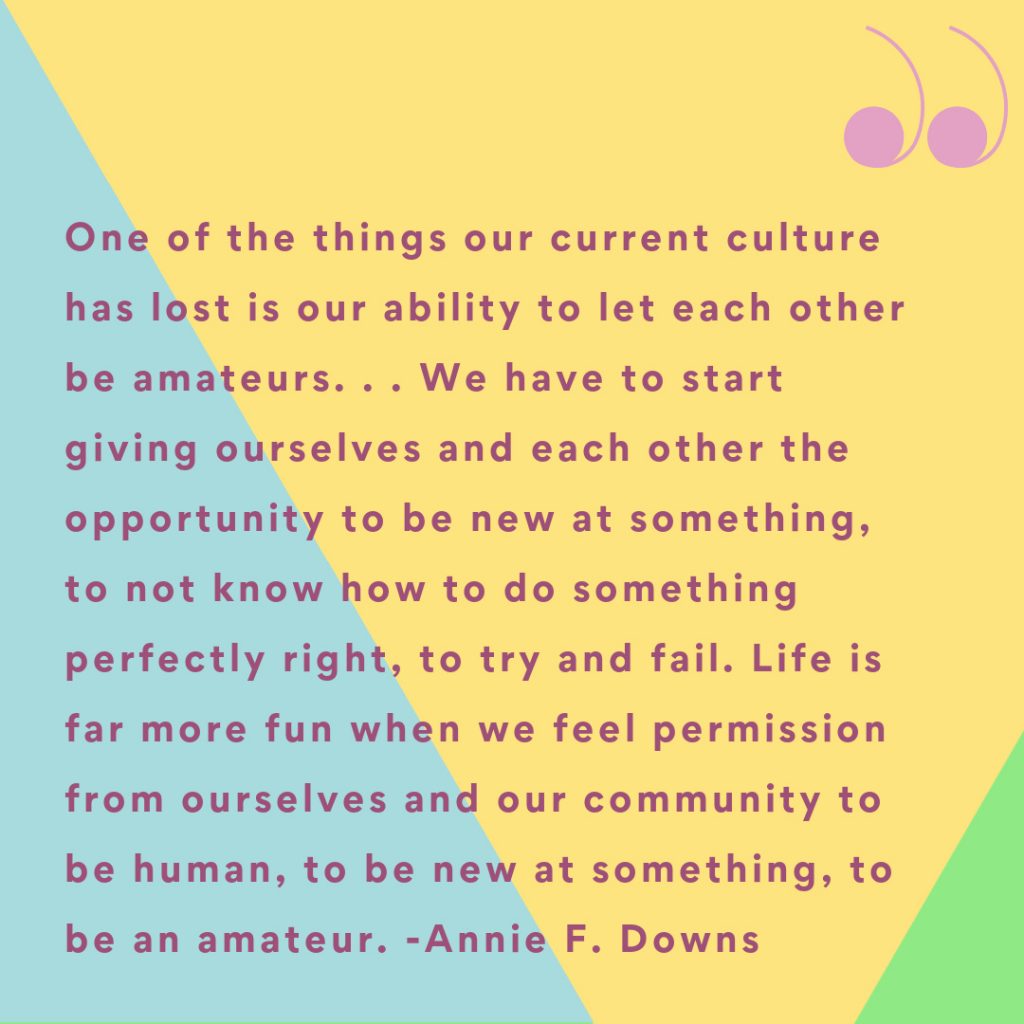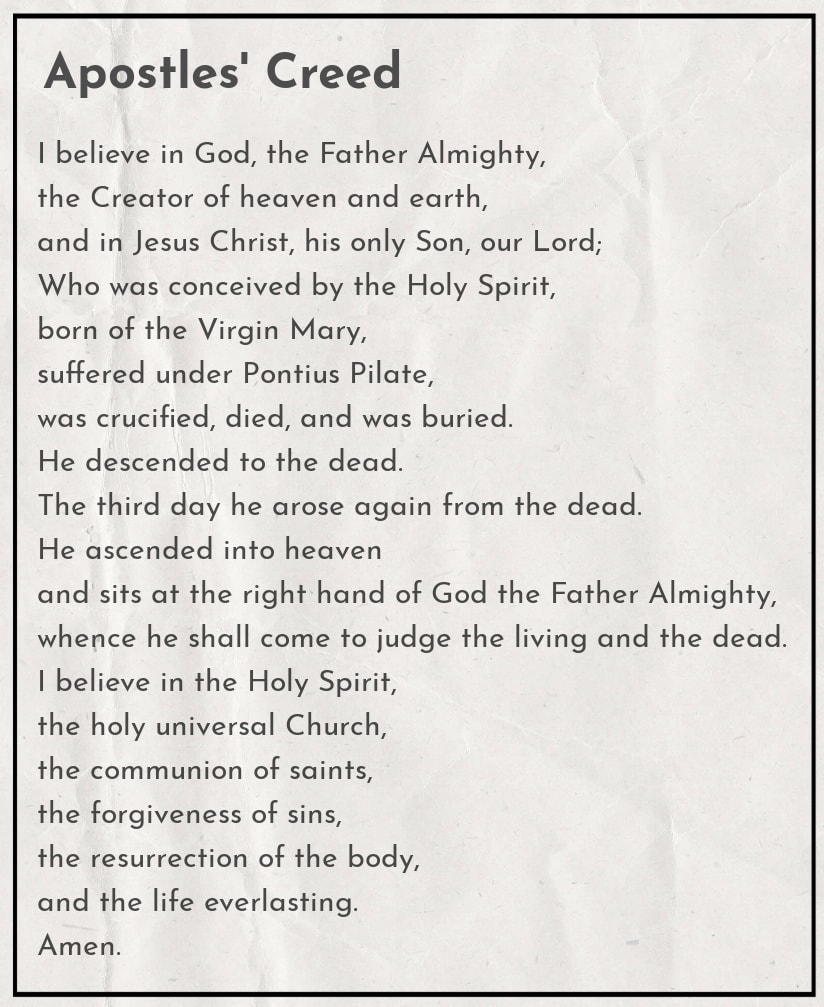How do you feel about being “in process” with your beliefs? If you’re like me, you find it deeply uncomfortable. I am sure there are people who love the adventure of uncertainty, but I am not one of them. I am much more at home with black-and-white absolutes, with total and unabashed confidence, with knowing exactly where I stand and how I feel about any particular ideology, belief system, or even personal preference. And I appreciate this same sure-footedness in others; it’s comforting to know what to expect from those around me, never having to second-guess a stance someone might take or wonder how they will respond to a particular event or new idea.

Unfortunately, we are complex individuals whose minds and hearts were never meant to remain static. Just as our bodies change from conception to life’s last breath, our perceptions and perspectives are designed to always be evolving.
I recently heard two of my favorite podcast hosts discuss the idea of giving one another permission to be in process. Their conversation revolved around relationships on the internet and how we need to be understanding of others’ fluid belief systems as presented on social platforms. They noted the value that exists in publicly seeing others successfully morph in their personal views (which frees us up to do the same) and in publicly sharing the in-process shifts to our own beliefs (which, in turn, opens onlookers up to the acceptability of change).
I have mixed feelings about the notion of sharing “in process” ideas so openly (says the woman who is processing through these very ideas on her public blog), but like Laura and Kendra, I fully endorse the approach of granting “permission to be in process” to those in our personal lives and, more importantly, to ourselves. As Annie F. Downs would say, we need to allow ourselves to be amateurs at life!

Aside from a few core truths, our faith and politics and personal convictions exist in the grey. When we cling too tightly to supposed absolutes, we are setting ourselves up for a hard fall when those beliefs prove faulty. Our unequivocal allegiance to unworthy beliefs closes us off to relationship, to learning opportunities, and to growth. We need to combat this fragile rigidity by giving ourselves permission NOT to have all the answers. It’s okay to be unsure of where we stand. And it’s okay to change our minds.
Another important component to this conversation is that we also need to give others (and ourselves) permission to NOT be in process. Sometimes we really are quite sure of what we know to be true, and as long as we hold these convictions with humility and grace, it’s just fine for them to remain unaltered. It’s also acceptable for others (and for ourselves) to process right back to where we began . . . because sometimes a meandering path doesn’t carry us to a new destination, but leads us back to a home we more fully appreciate after some time away. There is grace for the awkwardness of maturity, for the slingshot approach to our beliefs, and for the security of steady equilibrium.
Recently, I’ve begun to teach Charleston the Apostle’s Creed. We recite it together every morning, and the recitation reminds me of the very few core truths I refuse to compromise on. These are the things I know to be true. Everything else—from my political leanings to my stance on church practices and even how I feel about puppies and ice cream and the color pink—is subject to change. Permission to Be In Process: GRANTED.

Kendra – Brilliant! Wise beyond your years. Yes to all of this and I love how you closed it out with the uncompromising certainty of belief.
Thank you!
Amen.